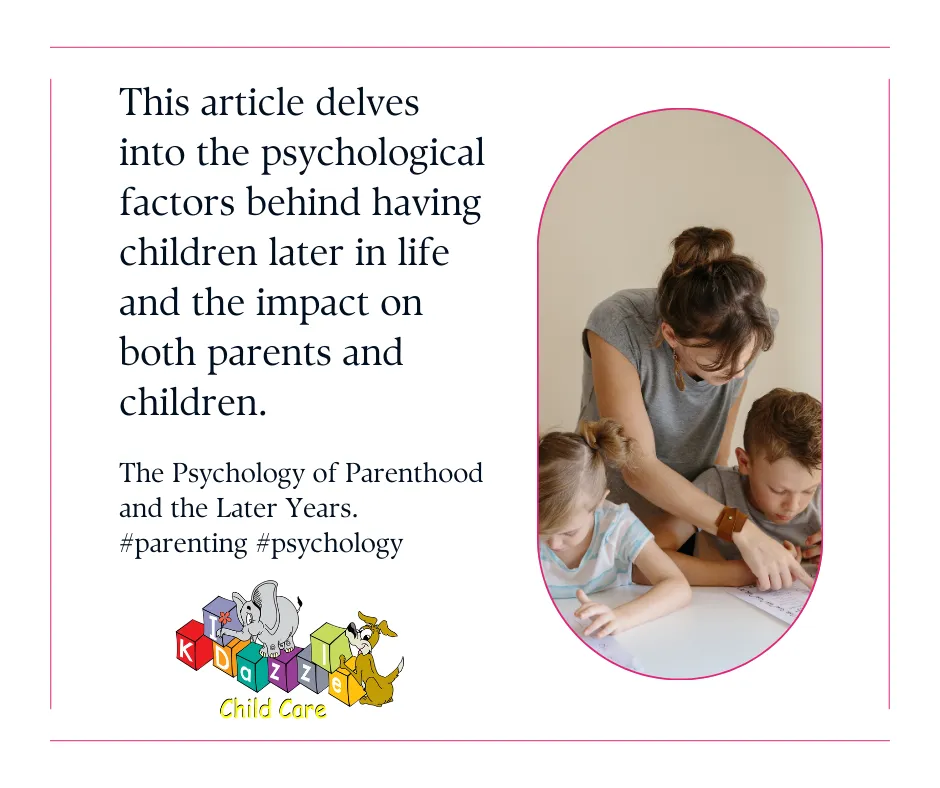
The Psychology of Parenthood: Exploring the Decision to Have Children Later in Life
The Psychology of Parenthood: Exploring the Decision to Have Children Later in Life
Deciding when to become a parent is a profound choice, and parenthood comes with its unique set of challenges and rewards. For those contemplating parenthood in their forties, fifties, or beyond, there are several crucial psychological factors to consider.
1. What Type of Happiness Are You Seeking?
Happiness can be divided into two categories: in-the-moment happiness and reflective happiness. In-the-moment happiness arises from immediate gratification, like enjoying a chocolate bar or a hot shower. Reflective happiness, on the other hand, stems from life milestones and accomplishments. Research suggests that having children can enhance reflective happiness, but it may come at the expense of in-the-moment happiness. Consider which form of happiness aligns with your current life stage and goals.
2. Evaluating Your Patience Levels
Parenting requires immense patience, as it involves an extended journey of nurturing, protecting, and teaching your child over many years. Assess your patience honestly, recognizing that patience levels can fluctuate throughout life due to various stressors and experiences. Scientific research categorizes patience into interpersonal, life hardship, and daily hassles. Reflect on your own patience using these categories and how it might impact your parenting journey.
3. Uncovering Your True Motivation
Introspection is key when considering parenthood. Explore your motivations for wanting a child at this stage of your life. Are your reasons intrinsic or extrinsic? Intrinsic motivations align with personal desires, while extrinsic motivations may stem from external pressures or expectations.
Psychologists suggest that success often comes more naturally when pursuing intrinsically motivated goals. To gain clarity, ask yourself five research-inspired questions:
Is someone else pressuring me to have a child, or do I stand to gain something from others if I do?
Would I feel regret or shame if I didn't have a child?
Do I genuinely believe that parenthood is an important goal for me?
Will parenthood bring me joy and fulfillment?
Does becoming a parent align with my core values and identity?
Every parenting journey is unique, and there's no universal timeline for having children. What matters most is that you enter parenthood with a plan and for reasons that resonate with your personal goals and values. With thoughtful consideration and introspection, there's no wrong time to embark on the rewarding journey of parenthood.
#Parenthood
#PsychologyOfParenthood
#LateParenthood